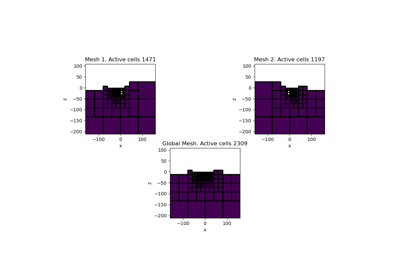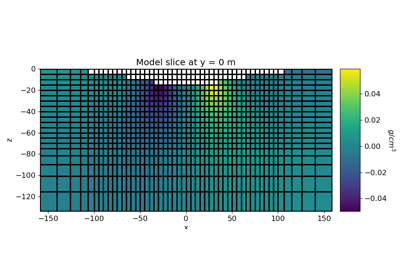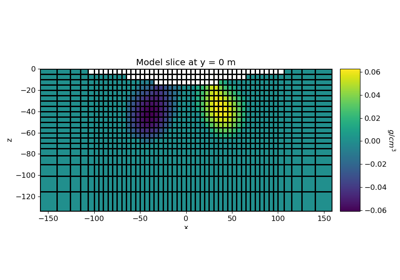SimPEG.potential_fields.gravity.Point#
- class SimPEG.potential_fields.gravity.Point(locations, components='gz', **kwargs)[source]#
Bases:
SimPEG.survey.BaseRxPoint receiver class for gravity simulations
The Point receiver defines the locations and the components of the gravity field that are simulated at each location. The length of the resulting data vector is n_loc X n_comp, and is organized by location then component.
- Parameters
- locations: (n_loc, 3) numpy.ndarray
Receiver locations
- components: str or list of str
Data component(s) measured at each receiver location. Use a
strfor a single component or alistofstrif multiple components are simulated at each location. Component choices are:“gx” –> x-component of the gravity field
“gy” –> y-component of the gravity field
“gz” –> z-component of the gravity field (DEFAULT)
“gxx” –> x-derivative of the x-component
“gxy” –> y-derivative of the x-component (and visa versa)
“gxz” –> z-derivative of the x-component (and visa versa)
“gyy” –> y-derivative of the y-component
“gyz” –> z-derivative of the y-component (and visa versa)
“gzz” –> z-derivative of the z-component
“guv” –> UV component
Attributes
Number of data
Galleries and Tutorials using SimPEG.potential_fields.gravity.Point#
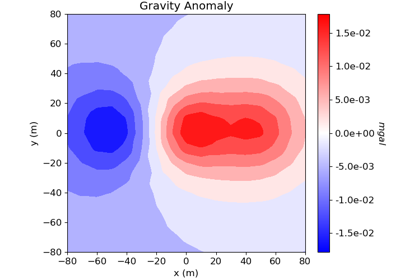
Cross-gradient Joint Inversion of Gravity and Magnetic Anomaly Data
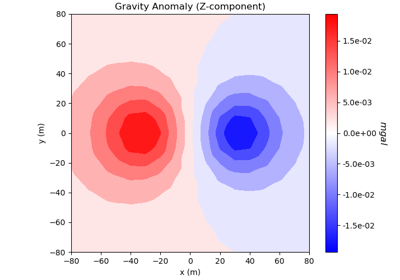
Forward Simulation of Gravity Anomaly Data on a Tensor Mesh
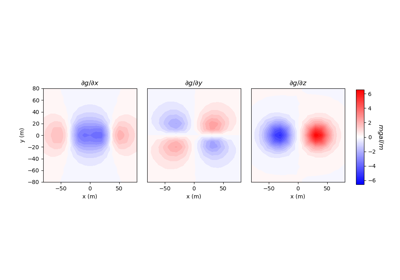
Forward Simulation of Gradiometry Data on a Tree Mesh
